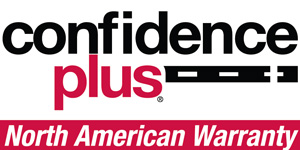Business Hours
- Monday - Friday
- BASHFORD AVE
7:30 AM - 4:30 PM
Phone: (502) 203-0454 - PRESTON HWY
7:00 AM - 4:00 PM
Phone: (502) 230-4279
AMERICAN BRAKE CENTERS INC.
(502) 203-0454 for Bashford Ave or (502) 230-4279 for the Preston Hwy location | 3435 Bashford Ave Ct Louisville, KY 40218
AUTONET TV
Archive for September 2022The Light Nobody Wants to See (Check Engine Light)Posted September 25, 2022 11:16 AMYou've probably had your Check Engine Light go on. Then it goes off and you figure, hey, whatever the problem was, it's gone now and I don't have to worry about it. Well, the problem may have gone away and it may not have. Your vehicle likely has one of these warning lights on the instrument panel: an amber light that looks like an engine or reads "Check Engine" or "Service Vehicle Soon." If that light comes on and stays on, it usually means there's something amiss but not urgently in need of service. (Now if it's blinking, that's another story that we'll deal with in a minute.) Sometimes when it comes on and stays steadily lit, the problem will go away and the light will go out. Sometimes it will stay on until you get the problem fixed. Either way, the engine's computer will store a code that can provide clues to what's not working—or wasn't working—the way it's supposed to. If you are just dying to know what that code is, you can buy a little code reader or take your vehicle to an auto parts store and they'll read it. Problem is, the code offers so many options that unless you are a trained technician, you probably won't have a clue what those codes mean. So if you want to be sure, take it to your vehicle repair facility and have them check it. Technicians are trained to decipher the codes and, using their experience and other diagnostic equipment, can get to the root of the problem and fix it. As we mentioned before, if that Check Engine light comes on and is blinking, it means a more serious engine malfunction that can damage expensive components such as the catalytic converter and even the engine itself. It's important to have that checked by a professional as soon as possible. American Brake Centers Inc. The Right Oil for the Season (Engine Oil Viscosity)Posted September 11, 2022 10:03 AMAs the temperatures plunge, certain types of engine oil may not flow as easily as they did when it was warmer. Makes sense, doesn't it? Just like molasses gets thicker as the temperature goes down, engine oil does the same thing. So, maybe you're wondering if you have to change your oil as the seasons change so it's just the right thickness to lubricate your engine parts. How well engine oil flows is called its viscosity. There are different types of oil—some that have just one viscosity and others called "multigrade" oils. Here's the difference. A single viscosity oil will flow better when it's hot but not as well when it's cold. A multigrade oil is engineered so that its flow properties at cold temperatures are different than they are at warm temperatures. In other words, a multigrade oil can start out in colder temperatures acting like a thinner oil and then behave like a thicker oil when it's warm. That's a pretty cool trick and it's why multigrade engine oil is used in nearly all vehicles. Your vehicle's manufacturer has the correct viscosity of oil for your particular model included in the owner's manual. Another choice you have to make when it comes to engine oil is whether you use conventional oil, synthetic oil or a blend of the two. Synthetic oils have some advantages over conventional, such as resisting breakdown better and withstanding higher temperatures. Check with your service advisor to see which viscosity and type of oil is recommended for your vehicle. It's important that in cold weather, the oil flows through your engine at the right thickness so that parts are being properly lubricated. That will make sure you'll get good fuel economy and performance, no matter what the temperature is.
Maintenance on My MindPosted September 4, 2022 7:03 AMAsk any Louisville man or woman if they've taken their vehicle in for preventive maintenance lately, and the answer may well be “no.” Surveys indicate that over 80% of vehicles on the road today are in need of some kind of repair or maintenance. Now, ask that same person why he hasn't taken his car in for care. The answer will probably be that he forgot or that he just didn't think about it. Most Louisville residents seem to have a hard time remembering about scheduled maintenance for their vehicles. American Brake Centers Inc. | ||
SearchArchiveJune 2019 (18)July 2019 (4) August 2019 (4) September 2019 (5) October 2019 (4) November 2019 (4) December 2019 (5) January 2020 (5) February 2020 (4) March 2020 (5) April 2020 (4) May 2020 (5) June 2020 (4) July 2020 (4) August 2020 (5) September 2020 (4) October 2020 (4) November 2020 (5) December 2020 (4) January 2021 (6) February 2021 (4) March 2021 (4) April 2021 (4) May 2021 (5) June 2021 (4) July 2021 (4) August 2021 (5) September 2021 (4) October 2021 (5) November 2021 (4) December 2021 (4) January 2022 (6) February 2022 (4) March 2022 (4) April 2022 (4) May 2022 (5) June 2022 (4) July 2022 (5) August 2022 (4) September 2022 (4) October 2022 (5) November 2022 (4) December 2022 (4) January 2023 (5) February 2023 (4) March 2023 (4) April 2023 (5) May 2023 (4) June 2023 (4) July 2023 (5) August 2023 (4) September 2023 (4) October 2023 (5) November 2023 (4) December 2023 (5) January 2024 (5) February 2024 (4) March 2024 (5) April 2024 (4) May 2024 (4) June 2024 (5) July 2024 (4) August 2024 (4) September 2024 (5) October 2024 (4) November 2024 (4) December 2024 (5) January 2025 (4) February 2025 (4) March 2025 (5) | CategoriesWhat Customers Should Know (41)Fuel Economy (6)Tires and Wheels (1)Timing Belt (3)Fluids (3)Maintenance (7)Service Intervals (1)Alignment (4)Check Engine Light (4)Steering (4)Exhaust (5)Shocks & Struts (1)Air Conditioning (4)Brakes (10)Older Vehicles (1)Cooling System (3)Battery (3)Water Pump (1)Oil Change (5)Transmission (2)Tires (2)Customer Detective Work (1)Fuel Saving Tip: Slow Down (1)Fuel System (1)Auto Safety (3)Keys to a long lasting vehicle (2)Windshield Wipers (2)Alternator (2)Automotive News (1)TPMS (1)Headlamps (2)Service Standards (2)Cabin Air Filter (1)Fuel Pump (1)Winter Prep (2)Safety (2)Shocks and Struts (1)Drive Train (2)Inspection (3)Engine Air Filter (1)Dashboard (1)Spark Plugs (1) | |











